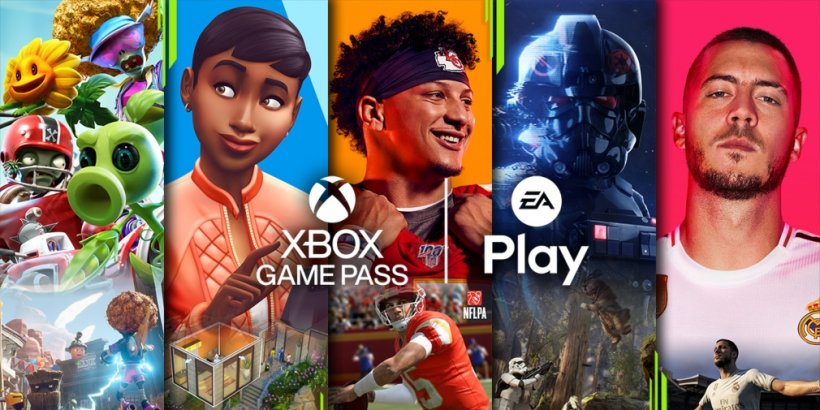Sony & Microsoft are in an exclusivity crisis - but mobile and PC stand to benefit

- Xbox is planning to bring games to chief competitor PlayStation
- But PC and mobile have increasingly broken down barriers for play
- Are consoles going the way of the Dodo in terms of exclusivity?
So if you’ve been watching gaming news recently, you may’ve seen that Xbox, Microsoft’s console gaming wing, have decided to drop their console exclusivity for four games. The Verge has suggested that Hi-Fi Rush, Pentiment, Sea of Thieves and Grounded will all be making the jump to PS5 and Switch in the coming months.
It’s a big change, even if it’s being played off as a simple business decision. But for many of us who use other platforms that are watching, the furor and speculation that’s followed this shift from exclusivity to more "open" platforms will have been confusing, if not amusing.
So why is Microsoft changing their stance? What does this mean for exclusivity and how have mobile - and PC - shown that this was a dying business model anyway?
What happened to exclusivity?
Now, if you weren’t already aware, the video game industry is going through a tough time recently. Rounds of layoffs (especially at the embattled Embracer Group), cancelled titles, slowing investment and the greater effects of economic recession mean people have less time and money to spend on games. This, among other things, is more likely than not the core reason why companies like Xbox are dropping the pretence of exclusivity. But the writing for this mode of business has arguably been on the wall for a while…
If you’re of a certain age, like me, between the older generation who remember the days of Sega and Nintendo battling it out, and the younger generation who grew up with smartphones from the day they were born, then you probably recall how complex gaming used to be. Or at least, it seemed to be, as back in the early 2000s, mobile phones were barely capable of running anything more complex than Snake while gaming PCs were these strange arcane contraptions absolutely foreign to the average player.
And yes, you can probably pick that argument apart, but that’s the atmosphere I recall, and it’s one that’s changed drastically. Now, gaming computers are much easier to obtain and understand, whether you want pre-built or custom-made by a specialist. Smartphones are so powerful that now you can play AAA-quality games that’d be completely unthinkable just a few years ago.
All of this means that exclusivity is much less of a factor people take into account, now that there’s so much more variety on other platforms. It’s now not something you really weigh the options of when buying a console; instead, it’s often more of an annoyance. It's not how you play, it's where you play.
Nothing new under the sun
And really, when you look at what Sony has also announced - saying they won’t be making any entries in their major franchises until 2025 - there really isn’t a "killer app" for either of these platforms. Meanwhile, PC has a huge back catalogue, dating back decades, and numerous high-profile releases, while mobile - naturally - has thousands of games from free to premium, indie and more that are increasing exponentially in quality and depth.
Indeed, even the big push into live service games is missing the point somewhat. If you put another live service game on console, that still means someone sitting down to play is going to have to devote a portion of their limited free time to playing. Meanwhile, on mobile, you can pick up and play whenever you have spare time throughout your day! That’s why the model tends to work better when you’re literally carrying it in the palm of your hand.
The Apple Effect
Not only that, but one of the primary reasons that mobile developers struggle and have to seek the path of squeezing players for profit - high store fees for in-app purchases - is also being broken down. Recent legislation like the Digital Markets Act in the EU and the ruling on the Epic V Apple case means that now, third-party storefronts with fewer restrictions and greater freedoms for developers must be allowed on platforms like iOS. Increasingly, we’re moving towards a path of fewer restrictions and more freedom on where you play games and how.Now, of course, Apple would - and have - argued this just means people will pump out lower-quality games to flood these other app stores. But whatever the controls they have in place, Apple has just as many bad games on iOS as any other platform. And even their own attempts to bargain "exclusives" through Apple Arcade limit their audience not only to people on their phones but also those willing to pay a subscription fee for the Arcade experience.
All in all, while mobile has tried to emulate some trends from traditional gaming consoles such as Xbox Game Pass, the addition of microtransactions, seasonal episodic content and more, nothing’s really held water. In fact, it seems more like consoles are going to follow them instead…

All in one?
Now I don’t personally think we’ll ever get to the point (at least not for a few decades) where you’ll play all your games on one platform. Dedicated hardware like a console or PC has its advantages over things like mobile and handheld devices, mainly in terms of ergonomics and ease of control. But I think we’re not ever going to see a two-horse race like we last saw with PlayStation and Xbox ever again, or at least not anytime soon.Nowadays, people are becoming increasingly used to games that stretch across different platforms. While games such as Genshin Impact or games similar to Fortnite are playable with progression carrying over on any number of platforms, these remain the exception. But they also prove that spreading the reach of your games wide is a winning formula compared to only focusing on one piece of hardware.
But what do you think about the move from exclusivity to games being on virtually all platforms? Let us know in the comments below! Are you excited to ditch console-buying in favour of sticking with your smartphone or PC? Are you annoyed you bought your preferred games-machine only to now have nothing you can’t play anywhere else on it? Or are you taking another position entirely? We want to know!
